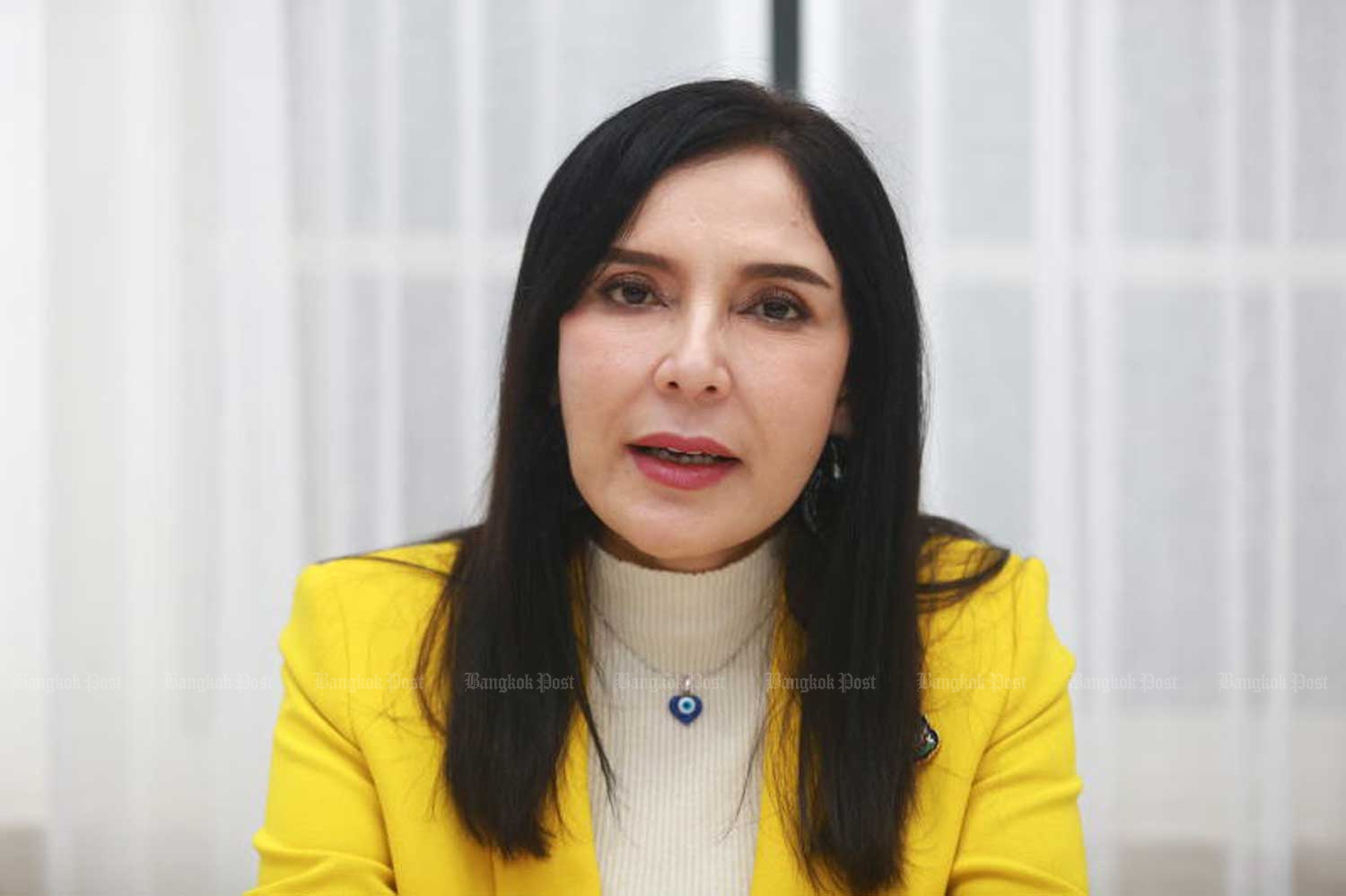
Mananya Thaises, deputy minister to the Ministry of Agriculture and Cooperatives, is now a high-profile name in Thai politics and society.
Her determination to ban three farm chemicals -- paraquat, glyphosate and chlorpyrifos -- has won wide praise from society and increased public popularity.
Her entrance into politics may be another tale of the patronage system in Thai politics.
Ms Mananya, who serves as the mayor of Muang Uthai Thani municipality, was appointed by the Bhumjaithai Party to replace her brother, Chada, an elected MP who has a criminal reputation.
But the local politician from Uthai Thani has managed to prove her own worth.
After just a month in office, the first-time deputy minister boldly announced she would order a ban on the three farm chemicals by the end of this year.
She ordered the Department of Agriculture, which is under her supervision, to prepare measures to use alternative substances.
Banning farm chemicals might sound easy. However, the battle is actually a tough one, as there is a chemical industry behind the Department of Agriculture, which is responsible for the regulation of the chemicals.
Despite scientific reports and warnings from the Public Health Ministry, the Office of the Ombudsman, and consumer groups of the health hazards of these chemicals and calls for their ban, the National Committee on Hazardous Substances has so far held out.
The committee -- comprising of 29 members from state agencies, academic experts and private sectors -- has decided to defer the ban until it finds better alternatives.
These farm chemicals have been subject to strict regulations and bans all over the world. Glyphosate, the famous weed killer, is banned in over 50 countries.
Ms Mananya admitted her mission is harder than it seems.
She said lobbyists from interest groups have asked her to tone down her demands, which until now she has refused to do.
"Our party is made of local people, especially from the farming sector. We understand them and want to upgrade their quality of life by making sure they do not use these hazardous chemicals. They have alternatives and other methods to replace them. If we want to be the world's kitchen, we need to stop using them," she told the Bangkok Post.
The Department of Agriculture, which is under the supervision of Ms Mananya, is also resisting her orders.
The department is responsible for issuing regulations on the use of chemicals and has consistently rejected requests for information.
Two weeks ago, Ms Mananya made an unofficial visit to the department, asking for information on the toxic chemical inventory she had requested over a month ago. She demanded the department follow her orders.
"As long as I am still deputy minister, you need to follow my orders. Otherwise, you have to find a way to oust me from this position," she was quoted as telling officials that day.
A week later, she visited Klong Toey Port in Bangkok and a chemical factory warehouse in Bang Poo Industrial Estate after finding some discrepancies between the stocks provided by the Department of Agriculture and information from other state agencies that oversee the import and stocks of these three farm chemicals.
She demanded the National Committee on Hazardous Substances reveal its decisions to make the process more transparent.
"I believe revealing its decisions can change the outcome. If not, at least people who support the use of these harmful chemicals should be able to explain this to society."
As a politician in a farming community, she said she has first-hand knowledge of the negative impacts of chemicals on local people.
She told the media that as a politician in Uthai Thani province, where most voters are farmers, she has attended several funerals of villagers.
She always asks about the cause of death, and many people say the deceased died from sicknesses related to farm chemicals.
"I can't wait until all of them are banned. The only thing on my mind is how to make it stop right now. I don't believe in the current measures already in place. If the regulations really worked, people wouldn't be falling ill as a result of exposure to these toxic chemicals."